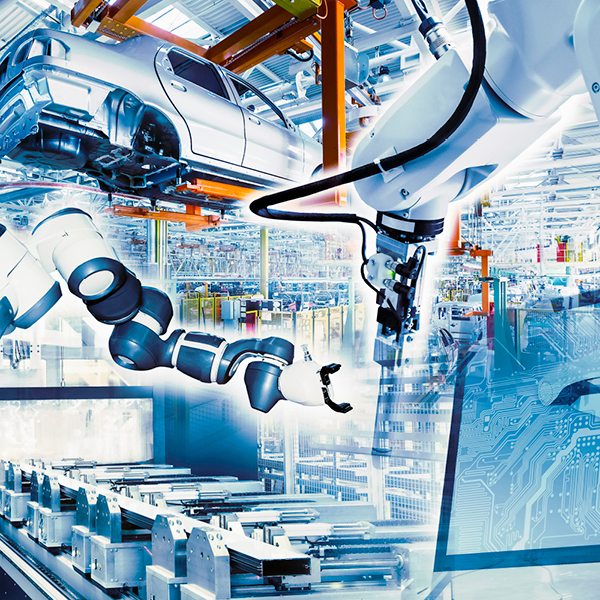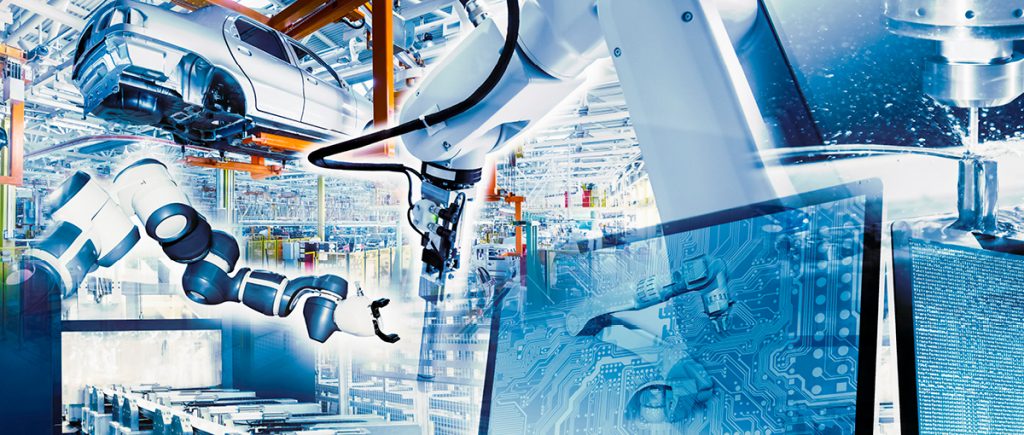Scientific progress, the availability of technical facilities, cross-fertilisation between different research communities and combined innovation are giving us an unstoppable progression of human capabilities. But how much, and more importantly, which innovation is really on a human scale?
Giovanni Miragliotta, Professor of Advanced Planning, Co-Director of the Industry 4.0 Observatory, Politecnico di Milano
Everywhere we look, as citizens and as researchers, we read about the “magnifiche sorti e progressive[1]” that, by means of new technologies, are changing our society and our lives. From the more familiar ones, such as broadband communication networks, to the more advanced, such as bioengineering, to those operating behind the scenes, such as cryptography, it all comes together to the point where it is almost difficult to realise the potential for change in the research and innovation system we have built up in developed countries. This potential is realised from time to time by some unexpected discontinuities, such as the pandemic we are currently experiencing, which, by combining the various existing innovations, show us how the way we work, teach, plan and treat can be overturned in just a few months. A very powerful reflection in this sense, also and above all because it comes from a man of letters and not from a scientist, is the one recently published by Alessandro Baricco[2].
This occasion, which has shown us the extent and speed of possible change, can be used to elaborate on what innovation is at a human scale; it more important than ever to do so right now, in view of what is being developed in universities and laboratories all over the world, since the forthcoming technological breakthroughs could materialise a change, which many believe (and I am one of them) could be disruptive to the very core of our society.
If we consider western democratic states as the main scope, our society rests on a set of pillars, a mix of worldview ideology, morals and common sense, which form the glue. Some technological innovations (first and foremost bioengineering and artificial intelligence) are, so to speak, on a collision course with these pillars, and could lead to new societies, the extent to which they will be on a human scale is difficult to predict, at least as we currently interpret that scale.
Let’s us consider the central role that the work plays in the structure of society, even just focusing on its economic value and disregard the psychological aspects or that of personal fulfilment; for the first time in history we are beginning to glimpse a possible future in which not only we can no longer predict what our children’s jobs will be in 30 years’ time, but we are beginning to doubt that there may even be any jobs left. In an increasing number of specific fields of work (=Narrow AI), in fact, machines have already achieved superhuman abilities and, as you probably know, there is a huge debate about the balance between jobs created and lost. The analyses carried out in the Artificial Intelligence Observatory, at least for the next decade, seem to indicate a positive scenario[3], but if we extend the horizon of analysis, we cannot exclude a situation in which the demand for human labour will be much lower, made unprofitable or useless by the new skills of machines[4]. In the context of fragile monetary and fiscal equilibrium of nations, a significant alteration in the labour market could represent a strong element of instability.
Changing the technology of choice, the advent of biotechnology could in the near future bring about such major changes that the very foundations of society will be shaken: how will the concept of the family evolve if it were normal for human beings to live to be 120 years old, with youth lasting over 40 years? What will happen when the wealthier classes, in addition to being able to afford better traditional health care, can also afford to take steps to improve their genetic set-up in a way that cannot be matched by most people? Will we, for the first time in history, observe a divergence in our species, with a (small) fraction of the population having more capable, durable and long-lasting “hardware” (body + brain) than the majority of the population?
These examples make us think about the extent of possible economic and social change, but they do not yet seem to affect the ideological foundations of the society we have built in the West since the American and French revolutions, namely the profound belief in the value of freedom and the uniqueness and individuality of the person. But what if, in principle, by observing all the interactions of a person with their environment and their fellow human beings, it were possible to predict exactly what their feelings and needs would be? What would happen if Google or Facebook or others, on the strength of the immense amount of data they collect about us, knew how to advise us on the right book, the right job, the right investment, the right wife, the right preventive surgery, much better than we would know how to do on our own, confused and lost in an endless number of important decisions to be taken dozens of times in our (very long) lives? Would we then still be “free”? And if there is any freedom left, should we make use of it, or would it not be more convenient to delegate our decisions to a “life advisor” technology that would achieve to us a much higher probability of success and happiness than we could do with our own hands?
This last scenario, envisaged by many thinkers, opens up a radical rethinking of the founding principles of our society, first and foremost the liberal principle, leading to outcomes that could range from a further loosening of existing points of reference (in the wake of Bauman’s liquidity) to its total opposite, a very rigid technocracy.
The point is always the same: it is not possible to make predictions of any kind and, after all, the little that needs to be known, of pure speculation on the future, has already been written. These reflections, on the contrary, bring us to a very great responsibility, that of remaining very vigilant over the changes, even the slight ones, that technological innovation is imprinting on our society.
A future awaits us which can only be on a human scale if we will care about building it.
Reading notes
This reflection arises, and can be further developed, by drawing on the insights of the following authors:
- Yuval Harari: I recommend the whole trilogy on man’s past, future and present;
- Mark Tegmar, “Life 3.0”, and the debate at the Future of life Institute;
- Zygmunt Bauman, in particular his key text “Liquid Modernity”.
[1] Citation of the Italian romantic poet Giacomo Leopardi, “magnificent destiny and progressions”
[2] Alessandro Baricco, “Five years in one”, https://www.ilpost.it/2021/05/28/baricco-2025/
[3] See report Artificial Intelligence Observatory, “On your marks”, ed. 2019.
[4] Consider, for example, “A 3D printed car which is designed by AI”, www.thereviewstories.com/czinger-21c-ai-3d-printed-car/

























